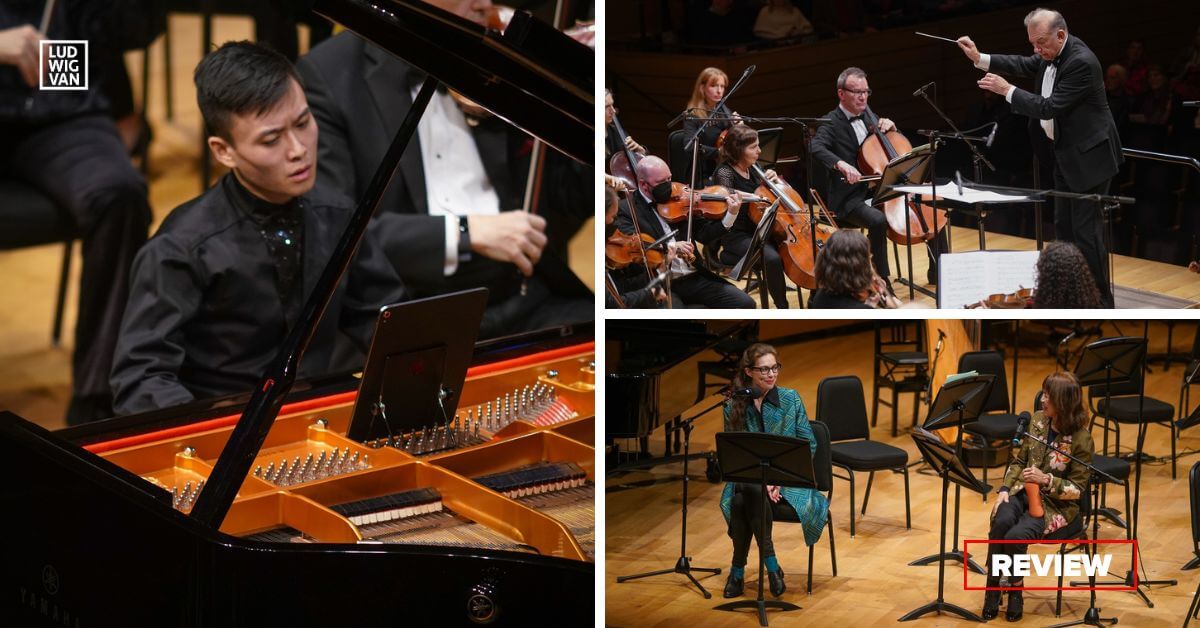
Esprit Orchestra. Vito Žuraj: Api-danza macabra. Žibuoklė Martinaitytė: Millefleur. Valentin Silvestrov: Postludium (Kevin Ahfat, piano). Kaija Saariaho: Circle Map. Alex Pauk, conductor. Nov. 30 at 8 p.m. Koerner Hall.
Alex Pauk and his Esprit Orchestra have been keeping us up to date on international developments for years. They were at it again Thursday night in Koerner Hall with a program of pieces from Slovenia, Lithuania, Ukraine and Finland, or at least by composers born in these countries.
The longest item at 30 minutes was Circle Map by Kaija Saariaho, the Paris-based Finn who died last June. Said to be inspired by the 13th-century poet Rumi, this 2012 suite of six movements was definitely not a setting, the only textual content being a few fragmentary, distorted and amplified readings of the original Persian. Even these were hard to detect amid the instrumental hubbub, except in the movement titled Dialogue, where supernatural-sounding growls made it to the foreground.
As an exponent of spectralism, Saariaho did not trade much in melody and harmony. What she did with enthusiasm was create complex textures, sometimes with a helpful clarifying element, like the pounding timpani in the movement called Circles. The opening evocation of Morning Wind was successful, as was the relatively lucid concluding movement, with its distinctive bassoon lines. One felt that Pauk and the orchestra made the clearest possible case for music that was not transparent by nature.
This was a Canadian premiere. The concert started with the first North American performance of Api-danza macabra (“Bee Dance of Death”) by Vito Žuraj, a Slovenian who is worried about declining bee populations. The five-minute piece mimicked the insect in question in various inventive ways, including scraping strings with pencils. Possibly concertmaster Stephen Sitarski, from whom much solo arpeggiation was required, was meant to be the queen. In any case, the piece worked because it had rhythmic impetus as well as sonority. I am not sure that the reference to Rimsky-Korsakov’s Flight of the Bumblebee added anything of interest.
Another Canadian premiere was of Millefleur by Žibuoklė Martinaitytė, a Lithuanian based in New York who was present for the performance. Open intervals adorned by mallet instruments prevailed through the first half of the 13-minute score, which the composer compares to walk through a sonic garden. The stroll happily became more eventful with the entry of brass and drums. Calm was restored at the end. ABA remains a fundamental formal template in the 21st century.
There was also music from the 20th century, Postludium by Valentin Silvestrov, a Ukrainian composer whose work has been circulating widely in the wake of the war. Subtitled “Symphonic poem for piano and orchestra,” this 18-minute piece is not really a concerto, although Kevin Ahfat made a vivid case for the solo part.
It started with what Pauk calls a Big Bang in his program note. The moment of creation was followed by many others. While there was a three-note theme somewhat reminiscent of Copland’s Fanfare for the Common Man, the rhetoric suggested constant starting and restarting rather than continuity and development.
The piano became dominant in the final minutes, with some stylings that veered dangerously close to the salon. Like Alfred Schnittke, Silvestrov is prepared to add overtly nostalgic touches to the modernist fabric, generally to intriguing effect.
Ahfat made the most of his Esprit debut by offering another Silvestrov evocation of the good old days, Moments of Mozart II from Three Pieces Op. 9, as a solo encore. The playing was luminous. The small audience of committed modernists was delighted.
Are you looking to promote an event? Have a news tip? Need to know the best events happening this weekend? Send us a note.
#LUDWIGVAN
Get the daily arts news straight to your inbox.



